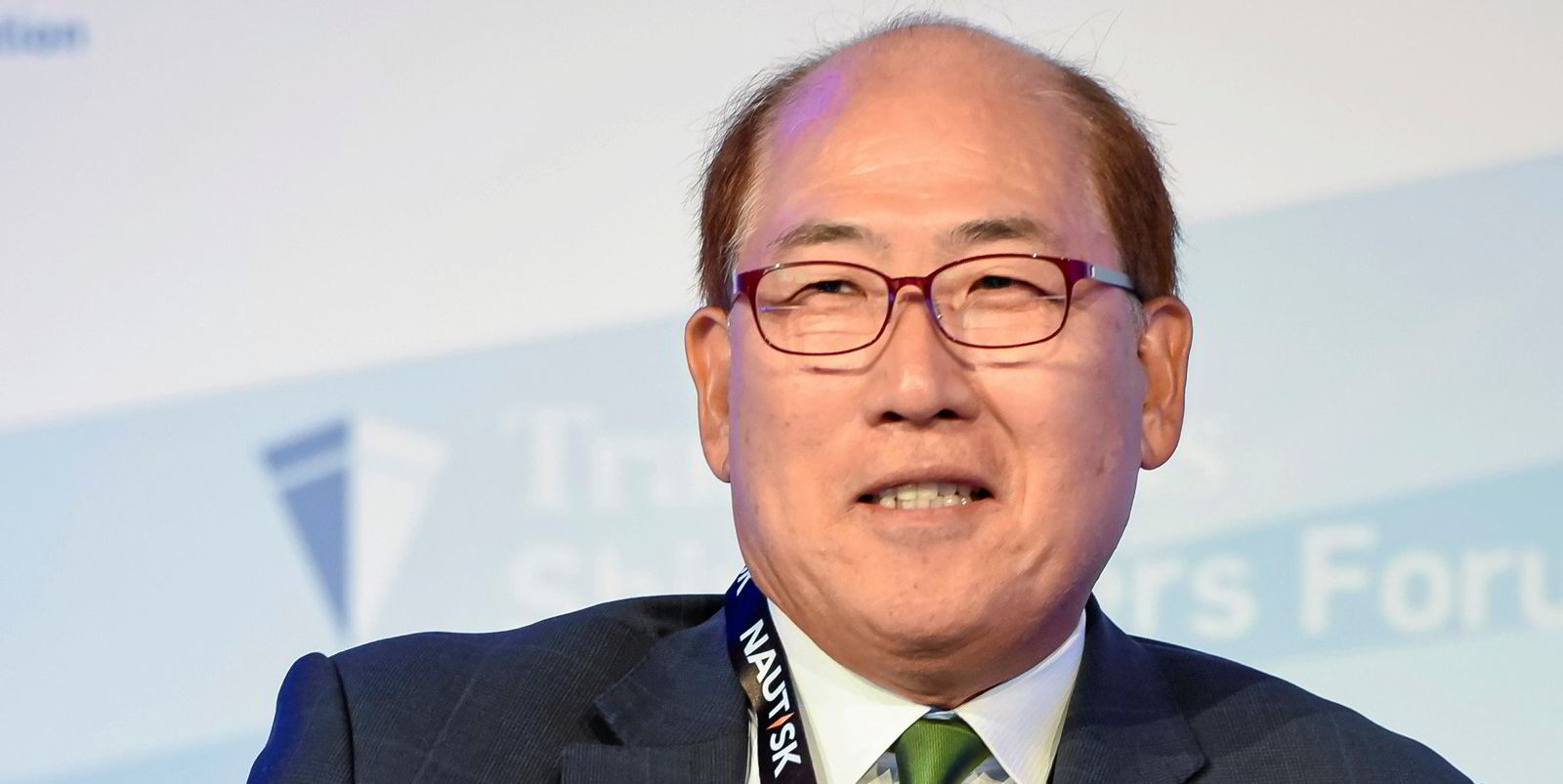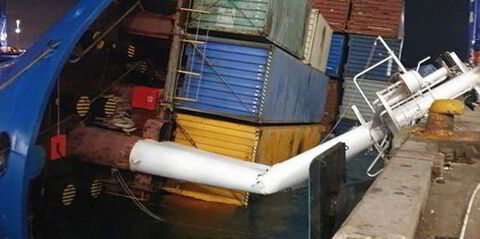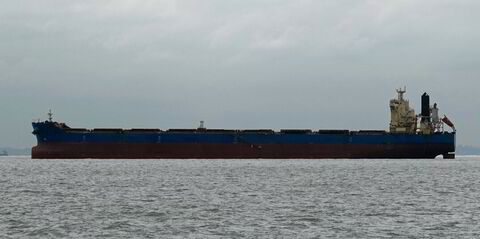What was your earliest memory?
Aged four or five, in my father’s factory, mischievously playing with the soap in the middle of the production process, much to the annoyance of the senior manager!
Did you go through training/university or straight into work?
Growing up in a port city, the Korea Maritime University in Busan provided a full experience of maritime culture. It taught me nautical science, a wide range of knowledge of maritime transport and a disciplined mindset through a navy-culture dormitory.
Who have been your mentors?
Joseph Angelo, an American colleague and IMO delegate, inspired compromise and collaboration as an “elder brother”. William O’Neil and Efthimios Mitropoulos, each an IMO secretary-general emeritus, for showcasing a model of commitment and commitment. The late Dr Giuliano Pattofatto taught me the philosophy of humility. I have also benefited from insights into the global industry from colleagues such as Captain David Bruce and Captain Ian Finley.
Ambition or talent — which is more important?
Ambition, since it stimulates motivation and effort to succeed. However, ambition must be tempered by humility. Talent will facilitate the realisation of ambition. Humility, talent and ambition are the perfect combination.
What would you have done if you hadn’t gone into shipping?
I would have become a mechanical engineer, maybe contributing to manufacturing marine engines. Or a psychologist. I have always been interested in the profession and would enjoy supporting and helping others.
How do you relax?
Moderate walking, watching films, talking with friends. Golf also helps me forget about any concerns.
Your biggest extravagance?
Mountain bikes and golf clubs. The calm sound of a bike’s wheels is peaceful music while riding through a scenic area. I have a huge interest in golf. Scenic golf clubs provide for memorable, enjoyable games.
What would you like to own that you do not possess?
A labrador retriever, a cocker spaniel, a power yacht and a horse.
When are you happiest?
When driving a high-speed boat, and when providing guidance to a young person with a high motivation, talent and humility.
What would you change in shipping if you could?
More efforts from the maritime community to enhance seafarers’ wellbeing, and greater public respect and appreciation for their dedication and professionalism. Enhanced collaboration between the shipping and port industries, and greater integration of shipping into the global supply chain.
What is your favourite place?
The awe-inspiring views of Machu Picchu in Peru — the beauty and the marvel of mortar-free limestone architecture high on a plateau deep in the Amazonian jungle and the majesty of the Urubamba River.
Which four people, living or dead, would you like to invite to dinner?
Nelson Mandela, Mother Teresa of Calcutta, Sir Anthony Hopkins and Julia Roberts.
What would your 20-year-old self say to you today if you met?
“As a senior servant of the global maritime community, now you have to pay back the younger generation by providing guidance to ensure a sustainable and ethical industry.”
What keeps you awake at night?
How to facilitate understanding, consideration and cooperation among IMO member states, to achieve common goals.
What are your favourite song, book and film?
Song: Tom Jones’ Delilah; book: Dynamic Governance by BS Neo and G Chen; film: Florian Zeller’s The Father with the great Anthony Hopkins in the lead.
What is the most important lesson you have learned?
Humility and generosity are the most important traits when relating with other people.
What are your best and worst characteristics?
Best is my ability to facilitate communication. Worst? I am rather hot-tempered.
What is your greatest achievement so far?
Promoting communication and collaboration between member governments and among IMO secretariat staff. Developments in safety and environmental policy in e-navigation and automation, the successful implementation of IMO 2020 and the adoption of the IMO Initial Greenhouse Gas Strategy.
Your greatest disappointment?
Too many seafarers remain stranded on vessels beyond their contractual period, and many remain at home unable to join ships to earn a living. This is compounded by the difficulties getting vaccinations as they work at sea for extended periods.
What ambitions do you still have?
In the IMO, the enhancement of a data-driven decision-making process and the establishment of automation-related regulations, plus facilitating R&D of alternative marine fuels. I also want to enhance mutual understanding among member states on major policy issues and expand capacity-building programmes for developing nations and small islands. On a personal level, I’d like to be able to contribute to charitable programmes to help children and young people in need or facing difficulties, by providing direction and guidance.
Kitack Lim was born in Masan, Gyeongsangnam, South Korea. He majored in nautical science at the Korea Maritime & Ocean University, Busan, graduating in 1977. After working on ships as a naval officer and for an international shipping company, he joined the Korea Maritime & Port Administration in 1985.
Lim began attending IMO meetings as part of the South Korean delegation in 1986. He was elected chair of the Sub-Committee on Flag State Implementation in 2001 and of the Tokyo Memorandum on Port State Control three years later.
In 2006, he was appointed director general of the Maritime Safety Bureau of the Ministry of Land, Transport & Maritime Affairs and then a senior maritime attache at the South Korean embassy in London. In 2011, Lim was appointed commissioner of the Korean Maritime Safety Tribunal. The following year, he was made president of Busan Port Authority until January 2016, when he became IMO secretary general.



